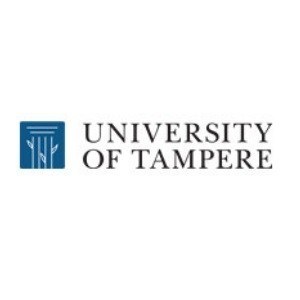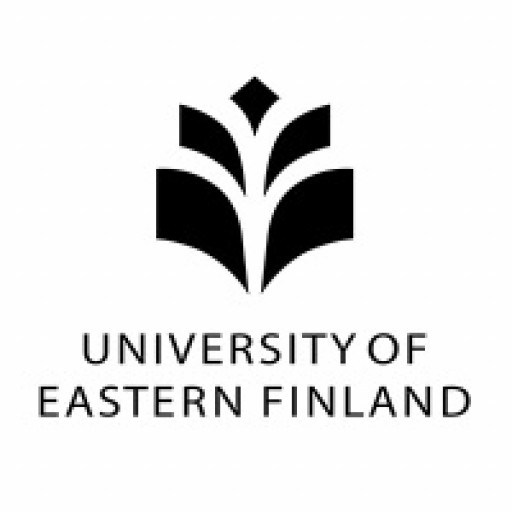Photos of university / #uniturku
The Law and Information Society master's program at the University of Turku offers a comprehensive interdisciplinary education that combines legal studies with insights into the evolving digital landscape. This program prepares students to understand and address the complex legal and societal challenges arising from technological advancements, digital transformation, and the increasing role of information in contemporary society. Through a rigorous curriculum, students gain in-depth knowledge of Finnish, European, and international law, focusing on areas such as data protection, cybersecurity, intellectual property, privacy, and digital rights. The program emphasizes critical thinking and analytical skills, enabling graduates to navigate and shape legal frameworks within the information society. Students also explore the social implications of technology, including the ethical considerations surrounding data handling, surveillance, and the digital divide. The program features a mix of coursework, seminars, and practical projects, fostering active participation and experiential learning. Collaboration with research institutes and industry partners ensures students are exposed to real-world challenges and innovations. Graduates of the Law and Information Society program are equipped to pursue careers in legal practice, policymaking, academia, and industry, contributing to the development of fair, effective, and sustainable legal solutions in the digital age. The program’s international orientation and multidisciplinary approach prepare students for diverse professional environments, both within Finland and globally. With a strong emphasis on research-based teaching and active student engagement, the Law and Information Society master's program at the University of Turku is ideal for individuals passionate about law, technology, and society’s future.
The Master’s Degree Programme in Law and Information Society at the University of Turku offers students a comprehensive understanding of the legal and societal aspects of information technology and digital environments. This program is designed to equip students with the skills necessary to navigate and shape the evolving legal landscape in an increasingly digital world. Throughout the programme, students will explore key issues related to data protection, privacy, cybersecurity, intellectual property rights, and the regulation of online activities. The curriculum combines legal theory with practical applications, enabling students to analyze current legal frameworks and propose innovative solutions to emerging challenges in the information society.
Students will engage with a variety of teaching methods, including lectures, seminars, case studies, and project work, fostering critical thinking and collaborative skills. The programme emphasizes the interdisciplinary nature of law and information technology, encouraging students to consider technological developments alongside legal, ethical, and societal implications. Additionally, the programme offers opportunities for specialized studies in areas such as digital rights, e-governance, and the regulation of digital platforms.
During their studies, students will benefit from close interaction with experienced faculty members who are actively engaged in research and development projects related to law and digitization. The program also facilitates internships and collaborations with private companies, public organizations, and international institutions, providing valuable practical experience and networking opportunities. Graduates of this programme will be well-prepared for careers in diverse sectors, including law firms, government agencies, international organizations, and technology companies, where expertise in the legal aspects of the information society is increasingly in demand. Overall, the Master’s Degree Programme in Law and Information Society aims to foster highly qualified professionals capable of contributing to the development of fair and effective legal frameworks that support a sustainable digital future.
The Programme is directed to students with a Bachelor of Laws degree. The applicant must have completed a lower university degree equivalent to a Finnish Bachelor’s degree in a University. Most of the credits in the degree should be from legal studies.
The required degree must be completed by 14 July 2017. If the required degree is not completed by the application deadline, applicants should enclose a statement from their home university stating the expected date of graduation.
The Programme admits a maximum of 20 students to pursue the Master of International and Comparative Law degree.
Starting from autumn 2017, all new admitted students who complete their degree will be awarded the Master of International and Comparative Law degree. It is not possible to obtain the Master of Laws Degree with any study background. This means that students who have a Bachelor of Laws degree (ON, RN) from a Finnish university as well as those who have passed an EEA aptitude test for the Bachelor of Laws and have been admitted to the Programme in autumn 2017 or later, cannot obtain the Master of Laws Degree from the Programme.
In addition, a maximum of five students who have already been accepted to the Master of Laws programme at the University of Turku are admitted to the LIS study track as part of their Master of Laws studies. The LIS study track has a separate application process.
All applications are pre‐processed by the University Admissions Finland and evaluated by the LIS selection board. Applications will be checked for plagiarism. The decision on admission is made by the Dean of the Faculty of Law. The maximum of 20 students are accepted to the Programme.
The decision for admission will be based on the level of:
- previous studies
- grades
- language skills
- personal interests
- written application examination.
The results of the admission will be published at the latest by 4 May 2017 at www.utu.fi/law/lis.
Applicants will also receive the notice in writing. The admitted students must notify the Faculty of Law as soon as possible, latest by 14 July 2017 at 15.00 Finnish time, whether they will accept the study place or not. If the Faculty of Law hasn’t received the student’s notification by 14 July 2017 at 15.00 Finnish time, they will forfeit their right to enrol in the Degree Programme.
Financing for the Law and Information Society Master's Degree Programme at the University of Turku primarily consists of various funding options available to both domestic and international students. Finnish universities generally provide a range of scholarships and grants to support students in their studies. The University of Turku offers scholarships specifically aimed at non-EU/EEA students, which typically cover partial or full tuition fee waivers. These scholarships are merit-based and are awarded based on academic excellence and motivation.
In addition to scholarships, students can explore government-funded student financial aid in Finland, which includes grants and student loans provided by the Finnish Economic and Cultural Foundation and Kela, the Social Insurance Institution of Finland. However, international students who are not from the EU/ETA region usually are not eligible for Finnish student financial aid programs and must seek alternative funding sources.
Many students finance their studies through personal savings, family support, or private loans. Some students may also obtain external scholarships from their home countries or international organizations. Part-time work is another common way for students to supplement their income; the university facilitates this through job portals and campus employment opportunities, which are available under Finnish regulations allowing students to work alongside their studies.
The total cost of the program includes tuition fee payments for non-EU/EEA students, which are set annually by the university and vary depending on the program. For EU/EEA students, there are no tuition fees, making their financing primarily focused on living costs and personal expenses. Living costs in Turku, including accommodation, food, transportation, and study materials, generally amount to approximately 700-1000 euros per month, which students need to budget for.
The university also offers guidance on funding options and financial planning through its student services and international office. Students are encouraged to start exploring financing options early to ensure they can cover both tuition and living expenses throughout their studies. Overall, while Finnish government aid is available mainly to EU/EEA students, non-EU/EEA students are advised to plan for scholarships, personal funding, and part-time employment opportunities to finance their studies at the University of Turku in the Law and Information Society program.
The Law and Information Society master's program at the University of Turku offers students an in-depth understanding of the legal and societal issues associated with information technology, digital communication, and data management. This interdisciplinary program combines law, technology, and social sciences to prepare graduates for careers in legal services, policy making, consulting, and academia, especially in fields where law intersects with the digital environment. The curriculum covers a wide range of topics including cyber law, data protection, intellectual property rights, digital innovation, privacy regulations, and governance in digital societies. Students gain critical analytical skills and legal expertise required to navigate the rapidly evolving digital landscape, ensuring they are well-equipped to address contemporary challenges such as cybersecurity, online rights, and digital ethics. The program emphasizes practical skills through case studies, legal drafting, and seminars, with opportunities for internships and research projects in collaboration with industry partners. Students also learn about the societal impacts of digital transformation and develop an understanding of international regulations and policies that govern the digital realm. To complete the program, students must undertake coursework, exams, and a master’s thesis that demonstrates their ability to analyze complex legal issues related to information society. The University of Turku’s strategic location and its focus on interdisciplinary research contribute to a comprehensive educational experience, enabling graduates to pursue careers in law firms, governmental agencies, international organizations, and private sector companies focused on digital law and policy. The program is designed to foster critical thinking, ethical considerations, and innovative problem-solving, making it highly relevant in today’s digital age where legal expertise is essential for navigating the legal challenges of the information society.








